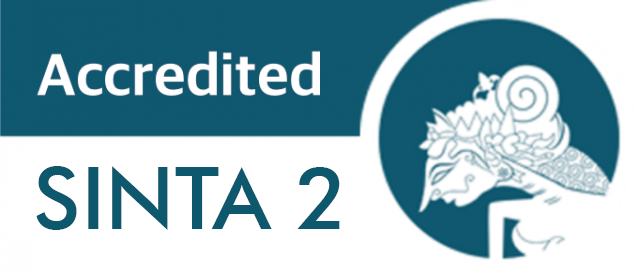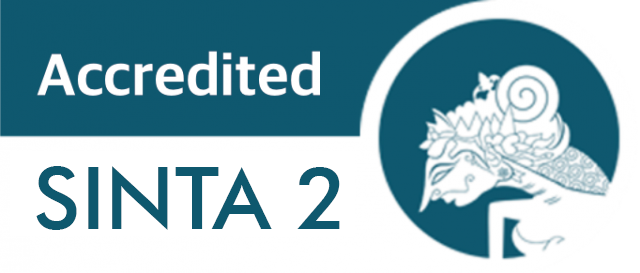Cross-Cultural Competency dalam Psikiatri Fokus pada Membangun Aliansi Terapeutik
Downloads
Membangun aliansi terapeutik positif (hubungan terapeutik) merupakan suatu prediktor keberhasilan suatu terapi dalam berbagai kondisi.Untuk memperoleh suatu aliansi kerja yang baik, sangat diperlukan kesesuaian antara terapis dan klien dalam beberapa faktor, diantaranya kesesuaian dalam hal latar belakang budaya, dan etnis. Ketidakmampuan memahami latar belakang budaya pasien akan meningkatkan angka ketidakpatuhan berobat dan putusnya proses psikoterapi, karena itu diperlukan peningkatan kompetensi terapis dalam memahami latar belakang budaya dan nilai yang dianut oleh pasien. Hal inilah yang disebut dengan cross cultural competency. Dengan memahami dan meningkatkan cultural competency disemua bidang baik oleh terapis maupun lembaga pemberi layanan, diharapkan pasien mencapai tujuan terapi sesuai dengan kebutuhan mereka secara individual.
Bhattarcharya, R., Cross, S., Bhugra D. (2010). Clinical Topics in Cultural Psychiatry. http://www.rcpsych.ac.uk.
Bhugra, D., & Bhui, K. (1997). Cross-cultural psychiatric assessment, 3.
Comas-díaz, L., & Comas-diaz, L. (2016). Cultural Variation in the Therapeutic Relationship, (Desember). http://doi.org/10.1037/11423-004
Dyche, L., Zayas, L. H., & Ph, D. (2001). Cross-Cultural Empathy and Training The Contemporary Psychoterapist, 29(3), 245–258.
Elvins, R., & Green, J. (2008). Clinical Psychology Review The conceptualization and measurement of therapeutic alliance : An empirical review, 28, 1167–1187. http://doi.org/10.1016/j.cpr.2008.04.002
Flynn, P. M. (2010). Based Treatment with Adolescents and their Families, 29, 1–16. http://doi.org/10.1007/s10591-007-9030-6.
Horvath, A. O., Re, A. C. Del, & Symonds, D. (2011). Alliance in Individual Psychotherapy, 48(1), 9–16. http://doi.org/10.1037/a0022186
Hougaard, E. (1994). The therapeutic alliance-A conceptual Analysis, 35, 67-85.
Huey, S. J., & Polo, A. J. (2009). Assessing the Effects of Evidence-BasedPsychotherapies with Ethnic Minority Youths.
Islanders,P.,& Islanders,P. (2009).CulturalCompetence : A Literature Review and Conceptual Model for Mental Health Services,60(8).
Jiloha, R. C., Kandpal, M., & Mudgal, S. (2012). Role of Culture in Psychiatric Evaluation and Management Psychiatric, 25(4), 265–267.
Jim, J. (2007). Perspective from Chinese Clients, 1–35.
Karimah, A dkk. (2015). Lebih Dekat Dengan Skizofrenia. Surabaya: Biro Kordinasi Kedokteran Masyarakat Fakultas Kedokteran Universitas Airlangga.
Koenig&Huguelet. (2009). Religion and Spirituality in Psychiatry. Durham: Duke University Medical Center.
Muljohardjono, H. (2017). Concised Comprehensive Study. Surabaya: Airlangga University Press.
Qureshi, A., Collazos, F., Ramos, M., & Casas, M. (2008). European Cultural competency training in psychiatry, 23, 49–58.
Schouler-ocak, M., Graef-calliess, I. T., Tarricone, I., Qureshi, A., Kastrup, M. C., & Bhugra, D. (2015). Original article EPA guidance on cultural competence training. European Psychiatry, 30(3), 431–440. http://doi.org/10.1016/j.eurpsy.2015.01.012
Sue, S., Zane, N., Hall, G. C. N., & Berger, L. K. (2009). NIH Public Access, 525–548. http://doi.org/10.1146/annurev.psych.60.110707.163651.
Sue. (1982). Counseling the Culturally Different: Theory and Practice. Vol, 16, No.4, 252.
Varcarolis, E. M. (2004). Developing Therapeutic Relationships.
Wintersteen, M. B., & Diamond, G. S. (2005). Do Gender and Racial Differences Between Patient and Therapist Affect Therapeutic Alliance and Treatment Retention in Adolescents ?, 36(4), 400–408. http://doi.org/10.1037/0735-7028.36.4.400
Copyright (c) 2018 Dina Elizabeth Sinaga, Hanafi Muljohardjono

This work is licensed under a Creative Commons Attribution-ShareAlike 4.0 International License.
1. Copyright of this journal is possession of the Author, by the knowledge of the Editorial Board and Journal Manager, while the moral right of the publication belongs to the author.
2. The journal allows the author(s) to retain publishing rights without restrictions.
3. The articles are published under a Creative Commons Attribution Share-Alike (CC BY-SA) license. Many research funding bodies prefer the CC BY-SA license because it allows for maximum dissemination and re-use of open access materials. Users are free to share (copy, distribute, and transmit) and remix (adapt) the contribution under this license, including for commercial purposes, as long as they attribute the contribution in the manner specified by the author or licensor.




























